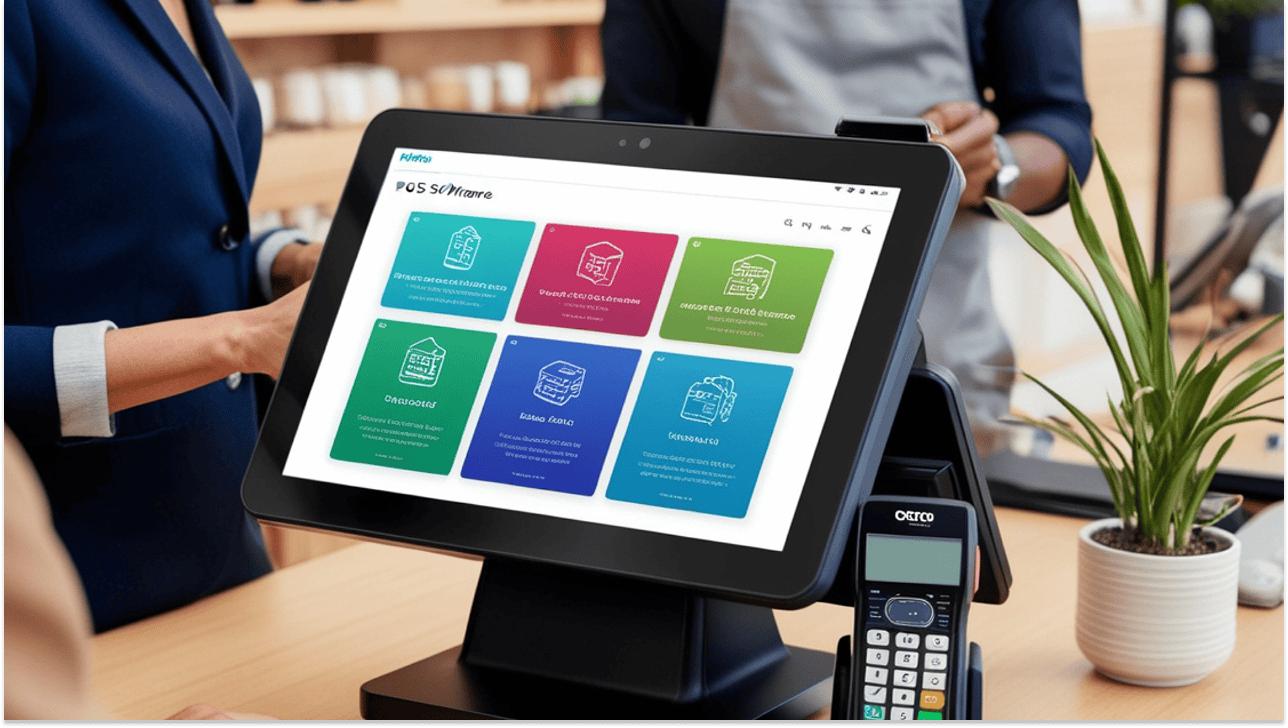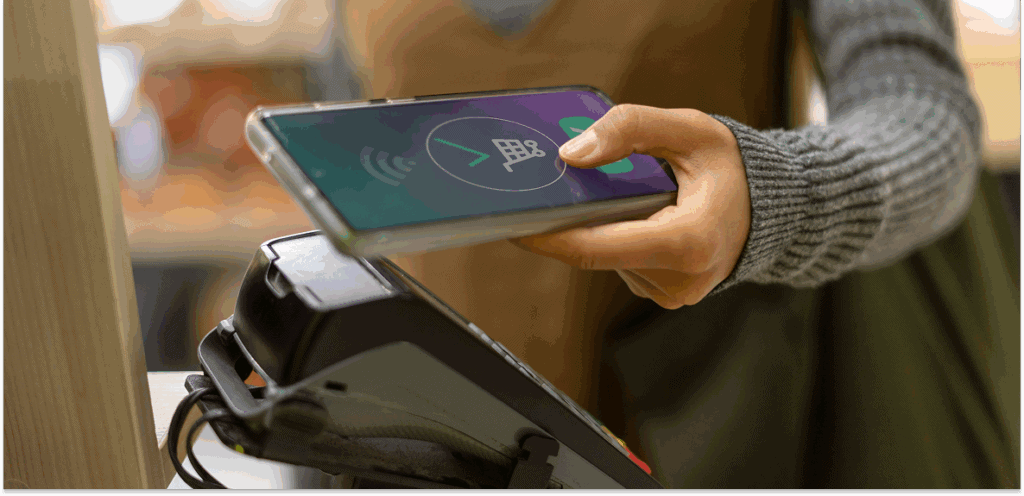
Best POS Systems with Built-In Security Features for 2025
Point-of-sale (POS) systems have evolved far beyond their traditional role of processing transactions. In 2025, the best POS solutions are intelligent, cloud-connected platforms equipped with advanced payment security features that protect businesses from fraud, chargebacks, and data theft. As small and large retailers alike digitize their payment operations, investing in a secure POS system has become an essential part of business strategy, not just an operational choice.
Modern POS systems now integrate real-time encryption, tokenization, and biometric authentication, making them stronger against evolving threats. In the past, POS terminals were prime targets for cybercriminals because they stored sensitive customer data in local memory. Today, that data is encrypted instantly at the point of entry and sent to secure cloud servers where it can’t be intercepted. This means even if the device is compromised, no usable data is ever exposed.
One of the most notable advancements is end-to-end encryption (E2EE) built directly into the terminal hardware. This ensures that cardholder data is protected from the moment it’s swiped, tapped, or inserted until it reaches the payment processor. Combined with tokenization, which replaces sensitive payment information with random digital identifiers, E2EE eliminates the risk of stored data being used in future attacks.
Another defining feature of 2025 POS systems is multi-factor authentication (MFA) for both employees and administrators. This prevents unauthorized access to sales data, settings, and payment history. Cloud-connected systems like Clover, Square, and Toast POS now require MFA logins for managers and owners, while offering role-based access controls for staff. This layered security reduces internal fraud risks and ensures that sensitive information stays restricted to authorized personnel only.
For businesses that handle in-person transactions, compliance with PCI DSS 4.0 is another major focus. The newest generation of POS systems automatically aligns with these global payment standards. They handle compliance updates, encryption key management, and audit logging without requiring manual oversight. This simplifies operations for small business owners who want to stay compliant without dedicating full-time staff to regulatory maintenance.
Cloud-based POS systems have also introduced built-in fraud monitoring and reporting tools. These systems analyze sales data in real time to detect suspicious patterns such as abnormal refund requests, duplicated transactions, or repeated card errors. When potential fraud is identified, business owners receive instant alerts, allowing them to take action immediately. This type of proactive defense is helping small businesses stop fraud before it becomes a financial or reputational disaster.
In 2025, the line between technology and security has blurred. The best POS systems are not just payment processors—they’re intelligent defense systems that protect both merchants and customers. By adopting advanced encryption, MFA, and real-time fraud analytics, businesses can confidently process payments while maintaining compliance and customer trust.
Clover POS: Simplifying Secure Payments for Small Businesses
Clover remains one of the most trusted POS systems in 2025 for small and mid-sized businesses. Its built-in security infrastructure includes full PCI DSS 4.0 compliance, end-to-end encryption, and tokenization for every transaction. Clover also integrates real-time fraud alerts that monitor unusual payment activity, protecting both the merchant and the customer.
A standout feature of Clover is its secure cloud storage system, which eliminates the need for merchants to retain sensitive card data locally. Each transaction is encrypted and tokenized before being sent to Clover’s network, drastically reducing exposure risk. With additional tools like biometric login for administrators and automatic compliance updates, Clover ensures merchants stay secure without needing deep technical knowledge.
Square POS: Security with Simplicity and Scalability

Square continues to dominate the POS market by combining ease of use with enterprise-grade protection. Its platform provides real-time encryption, secure hardware, and adaptive fraud prevention powered by AI. In 2025, Square has strengthened its authentication protocols, introducing multi-layer verification for employees and adaptive device recognition to prevent unauthorized logins.
One of Square’s biggest advantages is its seamless integration with multiple payment types—including EMV, NFC, mobile wallets, and QR code payments—without compromising data security. The company also provides automatic updates that include new security patches and compliance adjustments, ensuring merchants are always protected against evolving threats. Its analytics dashboard gives business owners visibility into payment trends and security events, making it one of the most transparent systems available.
Toast POS: Built for Restaurants, Designed for Security
Toast POS, originally built for the restaurant industry, has evolved into one of the most advanced and secure POS solutions available in 2025. It features built-in PCI DSS 4.0 compliance, encrypted offline mode, and continuous data backups. Toast’s system uses AI-driven transaction monitoring to detect chargeback fraud and refund abuse—two major pain points for the hospitality sector.
The platform also allows for detailed access control, ensuring that only authorized employees can issue refunds or void transactions. With its cloud-based infrastructure and automatic firmware updates, Toast provides real-time protection against the most common types of POS malware. Its secure payment gateway supports EMV chip cards, contactless payments, and even digital wallets like Apple Pay and Google Pay—all within a unified, compliant system.
Lightspeed POS: Enterprise-Grade Security for Retail and E-commerce
Lightspeed has become a go-to solution for retailers who manage both in-store and online transactions. Its advanced tokenization and cloud-based encryption protocols protect customer information across multiple sales channels. In 2025, Lightspeed introduced behavioral analytics into its fraud prevention engine, helping businesses detect suspicious checkout activity instantly.
Lightspeed’s infrastructure meets all PCI DSS 4.0 and GDPR standards, making it ideal for global retailers. It also offers a built-in compliance dashboard, enabling merchants to view audit trails, access logs, and encryption status reports in real time. With seamless API integrations and robust reporting tools, Lightspeed is designed for businesses that prioritize both performance and protection.
Top Secure POS Systems of 2025
| POS System | Key Security Features | Best For | Unique Advantage |
|---|---|---|---|
| Clover POS | PCI DSS 4.0 compliance, end-to-end encryption, tokenization, and biometric admin login | Small to mid-sized retail and service businesses | Simplified compliance automation with secure cloud-based transaction storage |
| Square POS | AI-driven fraud detection, adaptive device authentication, EMV and NFC payment encryption | Multi-location merchants and growing startups | Combines ease of use with advanced real-time threat detection |
| Toast POS | Offline encrypted mode, AI refund abuse prevention, access control for staff permissions | Restaurants, cafes, and hospitality chains | Specifically built for food service businesses with secure, industry-focused workflows |
| Lightspeed POS | Cloud-based encryption, tokenization, GDPR and PCI DSS 4.0 compliance, audit trail reports | Retailers managing both in-store and online transactions | Integrates seamlessly with e-commerce channels while maintaining centralized security |
| Verifone POS | Hardware-level encryption, tamper-resistant terminals, PCI P2PE certification | High-volume retail and enterprise businesses | Durable, hardware-secured POS solution for environments with heavy daily traffic |
| Revel Systems | Tokenized payments, cloud backup, employee access logs, end-to-end encryption | Quick-service and franchise operations | Combines analytics, operations management, and security into a unified dashboard |
How to Choose the Most Secure POS System for Your Business
Selecting a POS system in 2025 isn’t just about processing payments; it’s about building a secure, compliant, and scalable foundation for your entire operation. The best systems combine robust protection with seamless usability, helping merchants focus on sales while maintaining full regulatory compliance.
Identify Your Transaction Environment
The first step is understanding your transaction landscape. A retail store, restaurant, or e-commerce brand each faces unique security challenges. Retail environments need terminals with strong physical protection and EMV compliance, while online merchants should prioritize POS platforms with secure APIs, encryption, and tokenization. Matching the tool to your environment ensures both safety and performance.
Check for PCI DSS 4.0 Compliance
Any reputable POS system in 2025 must comply with the latest PCI DSS 4.0 standards. These rules govern how cardholder data is processed and stored. A compliant system encrypts every transaction, uses tokenization to replace sensitive data, and logs activities for auditing. Compliance also means automatic updates and continuous monitoring, reducing your business’s exposure to risk.
Evaluate Integration and Compatibility
Your POS should connect effortlessly with accounting software, payment gateways, and inventory systems. Modern solutions like Square, Clover, and Lightspeed use open APIs and cloud-based integrations that let you manage all business data securely in one place. Seamless integration minimizes manual handling of sensitive information, lowering the risk of internal errors or data leaks.
Consider Real-Time Fraud Detection
Advanced POS platforms now feature built-in AI tools that monitor transactions in real time. These systems detect unusual behaviors—like duplicate refunds or suspicious card activity—and alert the merchant instantly. By choosing a POS with predictive fraud detection, you can prevent financial loss and protect your customers before an attack occurs.
Focus on Access Control and Authentication

Multi-factor authentication, biometric logins, and role-based permissions are no longer optional. A secure POS system restricts who can access sensitive functions such as refunds, report exports, or system settings. Strong access control not only prevents insider threats but also ensures accountability for every transaction.
Balance Cost, Support, and Security
While pricing matters, security should never be compromised for savings. The ideal POS provider offers 24/7 customer support, automatic firmware updates, and regular security audits. Over time, a slightly higher subscription fee often saves money by preventing chargebacks, fines, or system downtime caused by breaches.
Building Trust Through Secure POS Technology
In 2025, point-of-sale technology has evolved from being a simple payment terminal to a complete security solution that helps businesses build lasting trust with customers. The most successful companies are those that understand that every secure transaction is an act of reputation-building. When a customer taps their card or scans their phone, they are placing their confidence in the business’s ability to protect their information. A single breach can destroy that trust instantly, which is why investing in secure POS systems is no longer optional—it’s a fundamental part of doing business.
Modern POS systems combine hardware-level protection with intelligent software features that constantly monitor and adapt. Instead of waiting for attacks to happen, they anticipate them using artificial intelligence and predictive analytics. These systems detect unusual transaction behavior, verify identities through biometric authentication, and automatically update to meet the latest security standards. Businesses no longer need to worry about manual patches or configuration changes—the POS system manages it all behind the scenes.
Cloud connectivity has made these tools even more powerful. Real-time synchronization means that sales data, inventory, and customer information are continuously backed up in secure, encrypted environments. Even if a terminal fails or is compromised, no sensitive data is lost. The cloud also allows for instant fraud detection across multiple store locations, ensuring that a threat identified in one branch can be blocked everywhere else within seconds.
As new forms of digital payments emerge—from mobile wallets to cryptocurrency terminals—POS systems are adapting quickly. Manufacturers are designing solutions that not only meet global compliance standards like PCI DSS 4.0 but also prepare for the future of decentralized transactions. Businesses that adopt these next-generation systems will be equipped to handle new payment types securely, attracting a broader customer base while minimizing operational risk.
The evolution of POS technology is about more than hardware upgrades—it’s about integrating intelligence, automation, and trust into every sale. Businesses that treat their POS system as the first line of defense will remain competitive, compliant, and customer-focused in a digital landscape where security defines success.
Frequently Asked Questions
Why is POS security so important in 2025?
POS security is crucial because it protects the most sensitive part of any business—the payment process. Cybercriminals continue to target businesses through card data theft, malware, and network breaches. In 2025, advanced systems that use encryption, tokenization, and real-time fraud monitoring are essential for preventing financial losses and maintaining customer trust. A single weak or outdated terminal can expose thousands of customer records, which is why continuous protection is now mandatory.
What security certifications should a POS system have?
A modern POS system should comply with PCI DSS 4.0, which governs how payment data is stored, processed, and transmitted. Additional certifications, such as P2PE (Point-to-Point Encryption) and ISO 27001, indicate that the system meets the highest global security standards. Businesses should always confirm that their POS vendor maintains these certifications and updates them regularly.
Are cloud-based POS systems secure?
Yes. Cloud-based POS systems are designed with strong encryption, firewalls, and continuous monitoring to protect data during storage and transmission. They also eliminate the need to store sensitive information locally, significantly reducing the risk of physical breaches or device tampering. Reputable providers automatically update their software to include the latest patches, ensuring ongoing protection without manual effort.
How does AI improve POS system security?
Artificial intelligence allows modern POS systems to detect suspicious activities in real time. It analyzes patterns in sales data, payment frequency, and user behavior to identify anomalies that may indicate fraud. By automating this process, AI can block fraudulent transactions instantly, reducing financial losses and improving overall operational security.
What features should businesses prioritize when choosing a POS system?
Businesses should prioritize systems with built-in encryption, tokenization, multi-factor authentication, and automatic compliance management. Real-time fraud alerts, role-based user access, and secure cloud backups are also essential. These features work together to protect data at every stage of the transaction while ensuring that compliance requirements are always met.
How do POS systems help with compliance and reporting?
Modern POS systems automate compliance tracking and generate audit-ready reports that align with PCI DSS and other data protection frameworks. They record every access attempt, transaction, and system update, providing complete visibility into payment activity. This not only simplifies regulatory audits but also helps identify security gaps before they become liabilities.
Closing Thoughts
The best POS systems in 2025 are not just tools—they are the foundation of business security and customer trust. As digital payments expand and cyber threats become more complex, merchants must rely on technology that offers both strength and simplicity. A modern POS system equipped with encryption, AI-driven fraud detection, and automated compliance provides peace of mind while keeping operations efficient.
Businesses that invest in secure POS solutions demonstrate responsibility and professionalism, two qualities customers value more than ever. Every transaction becomes a statement of trust, every data exchange a proof of integrity. Whether operating a small local store or managing a global retail chain, choosing a security-first POS system ensures business continuity, brand protection, and long-term success.
In the evolving world of digital commerce, security is not just a feature—it’s a promise. And the businesses that keep that promise are the ones that will thrive in the years ahead.